Use Skin
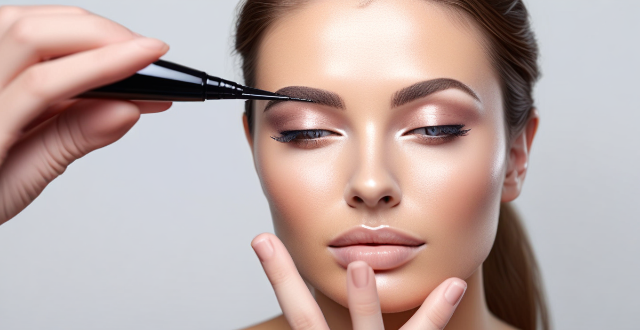
How do celebrities achieve flawless-looking skin with their makeup ?
Celebrities achieve flawless-looking skin with makeup by following a strict skincare routine, using primers and the right foundation, mastering contouring and highlighting techniques, setting their makeup for longevity, and enhancing their natural features like brows and lashes. By adopting these practices, anyone can recreate a celebrity-inspired makeup look at home.

What role does hydration play in maintaining healthy skin ?
Hydration plays a crucial role in maintaining healthy skin by moisturizing the skin, regulating body temperature, delivering nutrients to the skin, aiding digestion and detoxification, and boosting immunity. Drinking plenty of water and using moisturizers containing ingredients like hyaluronic acid, glycerin, or ceramides can help keep the skin hydrated and healthy. Proper hydration also supports numerous bodily functions that contribute to overall skin health.
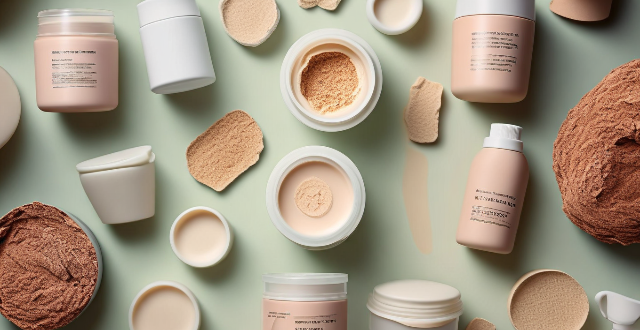
Can wearing a face mask cause skin irritation or acne ?
Wearing a face mask can cause skin irritation or acne due to friction, pressure, heat, moisture buildup, and bacterial growth. To prevent these issues, choose breathable materials, wash your face regularly with gentle cleansers, use oil-free skincare products, change your mask frequently, and consult a dermatologist if necessary.

What is the secret behind a celebrity's glowing skin ?
Celebrities are known for their flawless and glowing skin. While genetics play a significant role in determining the quality of one's skin, there are several other factors that contribute to a celebrity's glowing skin. These include professional skincare routines, healthy lifestyle habits, sun protection, makeup artists and estheticians, and sometimes luck in terms of genetics. By incorporating these practices into your daily routine, you can improve the overall health and appearance of your skin and enjoy a more youthful glow.

How often should I exfoliate my skin ?
Exfoliation is an important part of maintaining healthy and youthful-looking skin. The frequency of exfoliation depends on your skin type and personal preferences. Here are some general guidelines: 1. For oily or acne-prone skin, it's recommended to exfoliate once or twice a week. This helps to remove excess oil and prevent clogged pores. 2. For normal to dry skin, exfoliating once a week is usually sufficient. However, if you have sensitive skin, you may want to reduce the frequency to every other week or even once a month. 3. For mature or aging skin, exfoliating once or twice a week can help to smooth out fine lines and wrinkles while promoting cell turnover. 4. If you're using a chemical peel or microdermabrasion treatment, follow the instructions provided by your aesthetician or doctor for the appropriate frequency of exfoliation. Remember that over-exfoliating can cause irritation and dryness, so it's important to find the right balance for your skin type. Always test new products on a small area of your face before applying them all over, and always use gentle exfoliants designed specifically for your skin type.

Can diet affect the health and appearance of my skin ?
Diet can significantly affect the health and appearance of your skin. Incorporating nutrient-rich foods such as fruits, vegetables, nuts, fish, and whole grains can improve skin quality. On the other hand, consuming high amounts of sugar or processed foods can lead to inflammation and premature aging. Hydration is also key for maintaining skin's moisture levels. It's essential to consider dietary choices as part of a comprehensive skincare routine.

How do celebrities maintain their youthful skin ?
Celebrities maintain their youthful skin through strict skincare routines, healthy lifestyle habits, professional treatments, stress management, and protective makeup. Their routine includes cleansing, toning, using anti-aging serums, moisturizing, and sun protection. They also follow a balanced diet, stay hydrated, exercise regularly, get enough sleep, and manage stress through techniques like meditation and yoga. Professional treatments such as chemical peels, microneedling, laser resurfacing, Botox, and fillers are also common among celebrities. Protective makeup and proper removal are also part of their skincare regimen.
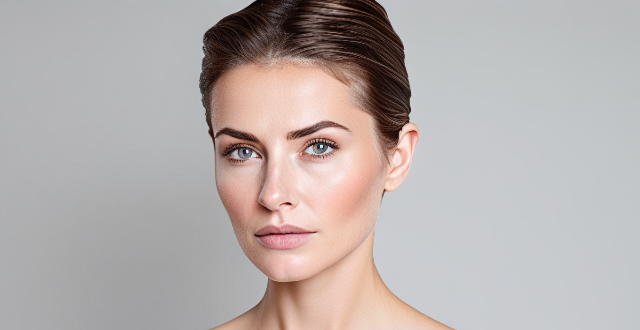
How do celebrities prepare their skin before applying makeup ?
Celebrities follow a skincare routine before applying makeup, tailored to their skin type and concerns. The routine includes cleansing, hydration, protection, and priming steps. An example routine for normal to dry skin is provided.
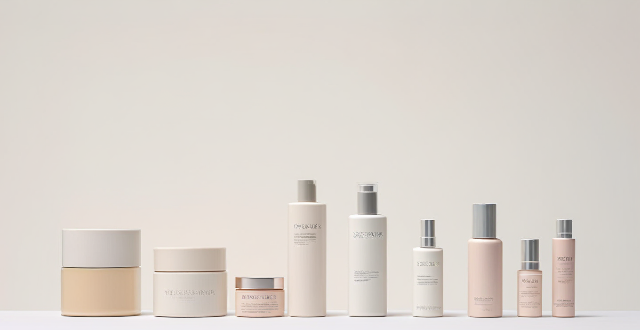
How do I choose the right makeup products for my skin type ?
The text provides a comprehensive guide on how to choose the right makeup products for different skin types. It starts by explaining the characteristics of each skin type and then suggests suitable makeup products based on these characteristics. For normal skin, lightweight and breathable formulas are recommended; for dry skin, hydrating products like rich moisturizers and liquid or cream foundations are suggested; oily skin should opt for oil-controlling primers and mattifying foundations; combination skin requires customization with balanced formulas; and sensitive skin should look for hypoallergenic and fragrance-free products with soothing ingredients. Additionally, the text offers general tips applicable to all skin types such as using sunscreen, gentle cleansers, and allowing each product to absorb before applying the next one. Overall, the guide emphasizes the importance of understanding your skin type to select makeup products that cater to its specific needs and enhance natural beauty.

What are the best skincare products for acne-prone skin ?
Acne-prone skin can be challenging to manage, but with the right skincare products, you can effectively control breakouts and improve the overall health of your skin. Here are some of the best skincare products for acne-prone skin: Cleansers: Salicylic acid cleanser is excellent for dissolving excess oil and dead skin cells in pores. Benzoyl peroxide cleanser is a powerful antibacterial agent that kills acne-causing bacteria. Toners: Witch hazel toner tightens pores and reduces inflammation. Tea tree oil toner has antibacterial properties effective against acne-causing bacteria. Moisturizers: Oil-free moisturizer won't clog pores or worsen acne. Gel moisturizers are lightweight and non-greasy, providing hydration without adding extra oil to the skin. Treatments: Retinoids unclog pores, reduce inflammation, and promote cell turnover. Alpha hydroxy acids (AHAs) exfoliate the skin and unclog pores. Sunscreen: Oil-free sunscreen with at least SPF 30 shields the skin from harmful UV rays without clogging pores.

How do I choose the right foundation shade for my skin tone ?
Finding the perfect foundation shade and formula for your skin tone is essential for achieving a flawless and natural-looking complexion. Here are some tips to help you choose the right foundation: 1. Identify your skin tone (warm, cool, or neutral) and undertones (yellow/golden, pink/red, or a mix). 2. Test different shades on your jawline in natural light and consider multiple shades. 3. Choose the right formula based on your skin type (liquid, powder, or cream). 4. Set the foundation with a matching powder using a fluffy brush. By following these tips, you can find the perfect foundation for your skin tone and achieve a flawless and natural-looking complexion.

How can I achieve a flawless base without looking cakey ?
Achieving a flawless base is every makeup enthusiast's dream. However, it can be challenging to get the perfect balance between coverage and avoiding a cakey appearance. In this guide, we will discuss some tips and techniques to help you achieve a flawless base without looking cakey. The first step in achieving a flawless base is understanding your skin type. Different skin types require different products and techniques to achieve the desired look. Here are some general guidelines for each skin type: - **Oily Skin**: Use oil-free or mattifying primers and foundations to control shine and prevent slipping. Set with a loose powder to absorb excess oil. - **Dry Skin**: Moisturize well before applying makeup and use hydrating primers and foundations that won't cling to dry patches. Avoid setting with powder on areas that tend to flake or peel. - **Combination Skin**: Use a lightweight, hydrating primer on dry areas and an oil-controlling one on oily areas. Choose a foundation that works well with both skin types and set with a translucent powder where needed. - **Sensitive Skin**: Look for hypoallergenic and fragrance-free products to avoid irritation. Test new products on a small area of skin before using them all over your face. Proper skin preparation is key to achieving a flawless base. Follow these steps before applying makeup: 1. **Cleanse**: Start by washing your face with a gentle cleanser suitable for your skin type. 2. **Tone**: Use a toner to balance your skin's pH level and prepare it for moisturizer. 3. **Moisturize**: Apply a lightweight moisturizer that suits your skin type, focusing on any dry areas. 4. **Prime**: Choose a primer that addresses your specific concerns (e.g., pore-filling, illuminating, mattifying) and apply it evenly across your face. Selecting the right foundation is crucial for achieving a flawless base without looking cakey. Consider the following factors when choosing a foundation: - **Coverage**: Determine how much coverage you need based on your concerns (e.g., blemishes, redness, discoloration). Lightweight formulas like tinted moisturizers or BB creams offer sheer coverage, while full-coverage foundations provide more substantial concealment. - **Finish**: Choose a finish that complements your skin type and desired look (e.g., dewy, matte, natural). Oily skin may prefer a matte finish, while dry skin may benefit from a dewy or satin finish. - **Shade**: Find a shade that matches your skin tone exactly. Test foundations on your jawline in natural light to ensure a seamless blend with your neck. Once you've selected the right foundation, it's time to apply it using the following techniques: 1. **Start with Less**: Begin by applying a small amount of foundation to your face and build up coverage as needed. This helps prevent over-application and ensures a more natural look. 2. **Use the Right Tools**: Choose tools that work best for your foundation type (e.g., brushes for liquid formulas, sponges for cream or mousse textures). Dampen your sponge slightly if using one to help sheer out the product and avoid streakiness. 3. **Blend Well**: Blend the foundation thoroughly into your skin, paying extra attention to areas where it tends to collect or cling (e.g., around the nose, mouth, and eyes). Use downward strokes to avoid lifting the foundation off your skin. 4. **Set with Powder**: Set your foundation with a loose powder only where necessary (e.g., T-zone) to control shine and extend wear time. Be careful not to overdo it, as too much powder can make your base look cakey. After applying your foundation, you may still have some imperfections that need concealing. Here's how to do it without adding too much product: 1. **Use Concealer Sparingly**: Apply concealer only where needed (e.g., under eyes, blemishes) using a small brush or your fingertip. Tap the product into place rather than rubbing it vigorously. 2. **Set with Powder**: Set concealer with a translucent powder to prevent creasing and ensure longevity. Again, be cautious not to layer on too much powder.

Can you share some easy makeup tips used by celebrities ?
Here are some easy makeup tips used by celebrities that you can try at home: 1. Prep your skin with a gentle cleanser and moisturizer. 2. Use a primer to smooth out your skin and create a base for your foundation. 3. Concealer is your friend – use it to cover up blemishes, dark circles, and other imperfections. 4. Choose the right foundation that matches your skin tone and has a finish that you prefer. 5. Set your makeup with powder to keep it in place throughout the day. 6. Add some color to your face with blush, bronzer, and highlighter. 7. Don't forget about eyes and lips – use eyeshadow, eyeliner, mascara, and lip color to enhance these features.

Is it necessary to use expensive products for a good skincare routine ?
Skincare is an essential aspect of personal grooming and well-being. Many people believe that using expensive skincare products is necessary for achieving healthy, glowing skin. However, the truth is that the effectiveness of a skincare routine does not solely depend on the price of the products used. In this article, we will explore whether it is necessary to use expensive products for a good skincare routine. Before discussing the necessity of using expensive products, let's first understand the key factors that contribute to a good skincare routine: cleansing, toning, moisturizing, and sun protection. Expensive skincare products often come with several benefits such as high-quality ingredients, advanced formulations, and brand reputation. However, these benefits do not necessarily mean that expensive products are always required for a good skincare routine. There are many affordable skincare products available that can provide similar benefits to their high-end counterparts. A good skincare routine should be tailored to your individual needs and preferences. Consistency is key when it comes to achieving healthy, glowing skin. Skipping steps or neglecting your routine will lead to subpar results regardless of the price of the products used. Sticking to a consistent regimen with affordable products can yield impressive outcomes over time. In conclusion, while there are certainly benefits to using expensive skincare products, they are not strictly necessary for achieving a good skincare routine. By focusing on key factors such as cleansing, toning, moisturizing, and sun protection, along with personalized choices and consistency, you can create an effective skincare routine regardless of your budget. Remember that the best skincare routine is one that works for you and makes you feel confident in your own skin!

How do I deal with acne and blemishes effectively ?
Acne is a common skin condition that affects millions of people worldwide. Here are some tips on how to deal with it effectively: wash your face regularly, apply a topical treatment, use over-the-counter medications, protect your skin from sun damage, eat a healthy diet, and get enough sleep. If your acne persists despite trying these methods, talk to your doctor about other options such as oral antibiotics or laser therapy.

How can I properly disinfect my hands without damaging my skin ?
To properly disinfect your hands without damaging your skin, you can use an alcohol-based hand sanitizer sparingly, soap and water for a gentler option, natural antiseptics like tea tree oil or lavender oil mixed with a carrier oil, or aloe vera gel for its antibacterial and antifungal properties. It's important not to overdo it and avoid touching your face after disinfecting your hands to prevent spreading germs.

Are lithium batteries safe to use ?
Lithium batteries have become an integral part of modern technology, powering a wide range of devices from smartphones to electric vehicles. However, concerns about their safety have been raised due to incidents of overheating and fires. In this article, we will explore the safety aspects of lithium batteries and provide guidance on how to use them safely. One of the main safety concerns with lithium batteries is the risk of overheating and catching fire. This can occur if the battery is damaged, improperly charged, or exposed to extreme temperatures. When a lithium battery overheats, it can cause a chemical reaction that leads to thermal runaway, which is a self-sustaining process that can result in a fire or explosion. Another safety concern associated with lithium batteries is the potential for chemical hazards. The chemicals used in lithium batteries can be toxic and harmful to human health if they are ingested, inhaled, or come into contact with skin or eyes. It is important to handle these batteries with care and dispose of them properly to avoid any potential risks. To minimize the risks associated with lithium batteries, it is essential to follow some basic safety tips: 1. Use genuine products from reputable manufacturers to ensure that the battery meets safety standards. 2. Avoid overcharging by not leaving your device charging unattended and avoiding using cheap chargers that may overcharge the battery. 3. Store your lithium batteries in a cool, dry place away from direct sunlight and extreme temperatures. 4. Inspect your batteries regularly for any signs of damage or swelling, and replace them if necessary. 5. Dispose of your old lithium batteries properly by taking them to a recycling center or following the manufacturer's instructions. 6. Follow the manufacturer's guidelines for your specific device and battery. 7. Keep lithium batteries out of reach of children as they may pose a choking hazard. 8. Use protective cases or covers for your devices to prevent damage to the battery. 9. Avoid dropping or mishandling your device as this can damage the battery and increase the risk of overheating. 10. Seek professional help if you notice any issues with your battery, such as swelling or leakage. In conclusion, while there are some safety concerns associated with lithium batteries, following these safety tips can help reduce the risks and ensure that you use them safely. By being cautious and responsible, you can enjoy the benefits of these powerful batteries without compromising your safety.
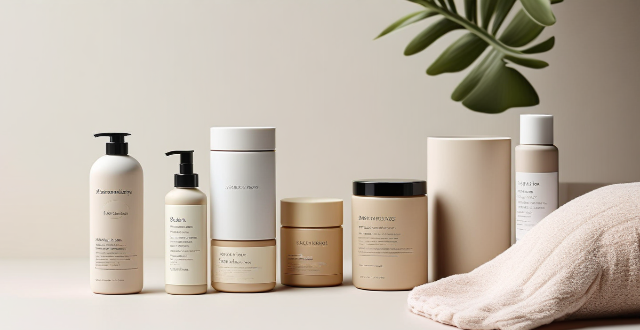
What are the best feminine hygiene products for sensitive skin ?
这篇文章为女性敏感肌肤提供了一些最佳的卫生产品选择,包括有机棉垫、无香精的卫生棉条、pH平衡的洗涤剂、天然油和透气内衣。这些建议旨在帮助女性在经期保持舒适和自信。

Can poor personal hygiene lead to skin problems ?
Poor personal hygiene can lead to a variety of skin problems, including bacterial and fungal infections, irritation and inflammation, and other conditions. To prevent these issues, it's important to practice good hygiene, such as regular showering, wearing clean clothes, hand washing, moisturizing, and sun protection.

What is the importance of sunscreen in a beauty routine ?
Incorporating sunscreen into your daily beauty routine is crucial for protecting your skin from the harmful effects of ultraviolet (UV) radiation. It prevents skin cancer, avoids premature aging, acts as a shield, maintains skin health, provides peace of mind, and considers environmental impacts. To incorporate sunscreen into your routine, apply it every morning, reapply every two hours or after swimming/sweating, choose a broad-spectrum formula, opt for water-resistant if engaging in water activities, and use a sunscreen with at least SPF 30.

Are there any specific exercises or massages that improve skin quality ?
Exercises and massages that improve skin quality include cardiovascular exercises, yoga, facial exercises, lymphatic drainage massage, gua sha, and using a face roller.
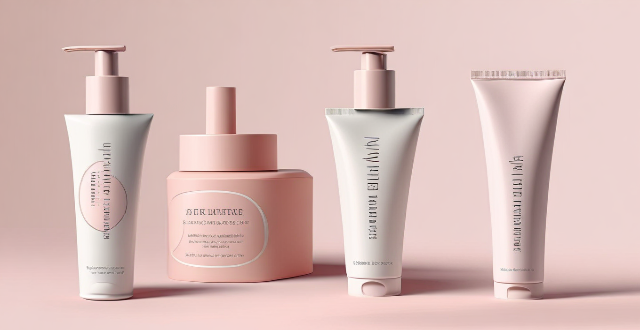
What are the best skincare routines for women ?
Skincare is an essential part of a woman's daily routine, helping maintain the health and beauty of the skin and boosting self-confidence. The best skincare routines for women include a morning routine with cleansing, toner, serum, eye cream, moisturizer, and sunscreen; an evening routine with makeup remover, double cleansing, toner, treatments, night cream/moisturizer, and eye cream; and a weekly routine with exfoliation, face masks, and lip care. It's important to tailor your routine to your specific concerns and preferences and patch test new products before incorporating them into your routine to avoid potential irritation or allergic reactions.

How can I achieve a natural-looking makeup in under 10 minutes ?
Achieving a natural-looking makeup in under 10 minutes is possible with the right techniques and products. Here are some steps to help you achieve a flawless, natural look in no time: 1. Prepare your skin by cleansing, moisturizing, and priming it. 2. Choose the right foundation that matches your skin tone and has a natural finish. Apply it evenly all over your face using a damp beauty sponge or a brush. 3. Conceal blemishes and dark circles using a concealer that matches your skin tone. Set your makeup with loose powder. 4. Add color to your face by applying blush, eyeshadow, and mascara. 5. Finish your look by applying lip balm or gloss and spritzing on setting spray to lock in your makeup.
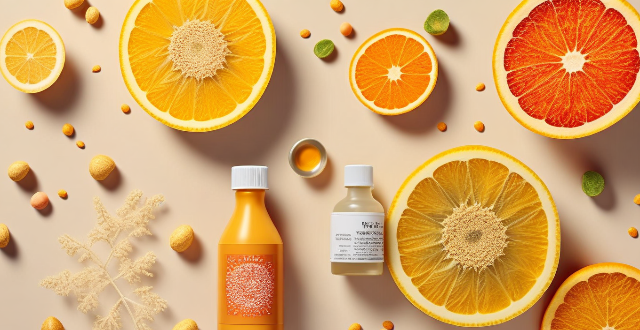
What are the most effective anti-aging products used by celebrities ?
The most effective anti-aging products used by celebrities include retinol, hyaluronic acid, vitamin C, and sunscreen. Retinol reduces the appearance of fine lines and wrinkles, while hyaluronic acid provides intense hydration and plumps up the skin. Vitamin C brightens skin tone and protects against environmental damage, and sunscreen is essential for preventing premature aging caused by sun damage. By incorporating these products into your skincare routine, you can enjoy younger-looking skin like celebrities do.
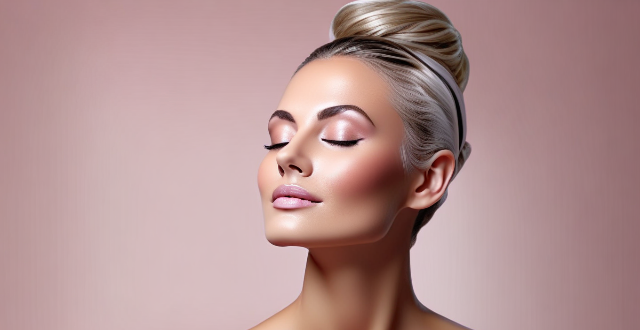
What role does skincare play in a celebrity's makeup routine ?
Skincare is a fundamental aspect of a celebrity's makeup routine, as it ensures a flawless complexion and long-lasting makeup application. Celebrities understand the importance of healthy skin, which acts as a smooth canvas for makeup application. They invest in high-quality skincare products and follow a consistent routine to prevent premature aging and maintain a youthful appearance. Tips for achieving flawless skin include cleansing, toning, moisturizing, using sunscreen, exfoliating regularly, and investing in high-quality products. By prioritizing their skin's health, celebrities can enjoy a radiant glow that enhances their overall beauty.